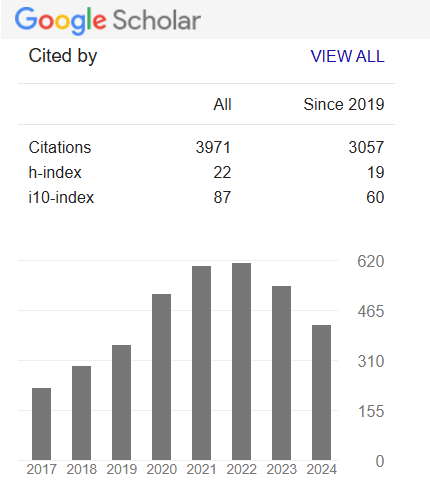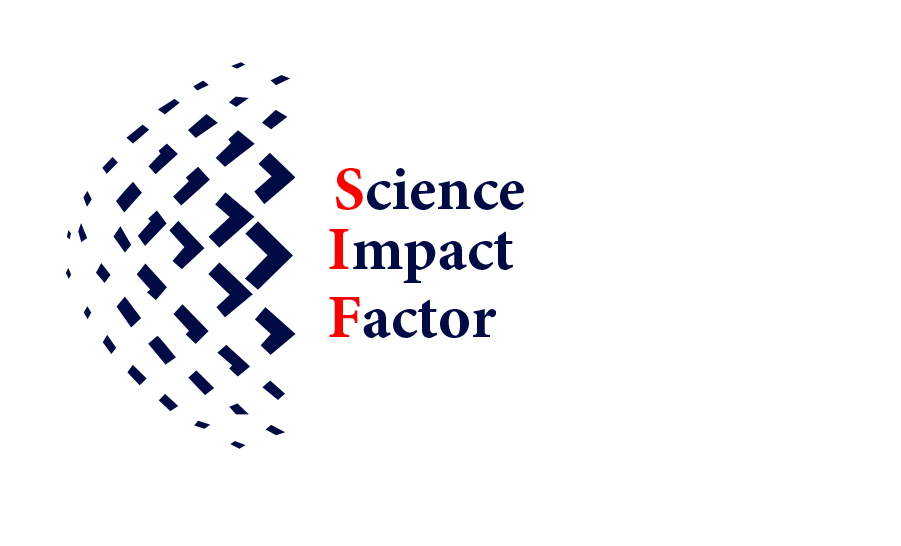Well being and mental health among COVID-19 recovered patients
Keywords:
Covid-19, emotional, psychological, social well-being,Abstract
Backgrounds: Covid-19 is an infectious disease caused by the newly discovered coronavirus. Covid-19 virus is spread mainly through saliva droplets or runny nose when an infected person coughs or sneezes. COVID-19 has changed the lives of people all over the world in amazing ways. Coronavirus was first discovered in Wuhan, China in December 2019 and was originally named acute respiratory syndrome coronavirus 2. Mental health denotes emotional, psychological, and social well-being. Positive mental health and positive psychology have an imminent role to play during this unprecedented public health crisis. Although there is enough evidence-based literature on the application of positive mental health techniques at individual level for stress reduction or life fulfilment, its application in a pandemic scenario is minimally explored. Happiness strategies classically outlined in Lyubomirsky’s book “The How of Happiness” revolve around (a) living in the present, (b) managing stress (which is outlined later in this article), and (c) investing in social connections. Mindfulness meditation practice daily helps in quieting one’s mind and prevents the constant internal mental chatter. This is additionally proven to focus your attention on the present moment and a lot of existing research has proven the efforts of its practice in maintaining and nurturing improved mental health.
Methods: To obtain the sample group, official permission was taken from the authorities in changes from different places from Ahmedabad city, Gujarat. Followed by a brief rapport, an informed consent was obtained from each subject promising confidentiality and anonymity. The tool was then administered after giving relevant instructions and ensuring that the subject has understood them. Privacy and comfortable atmosphere were ensured throughout the data collection. All the subjects were thanked for giving their valuable time and consent to participate in the study. After completion of data collection, a response of each respondent on the entire tool was scored with the help of respective scoring keys.
Results: we tested the F-ratio (see Table 1). For the gender (male and female) we got F=4.634, p < 0.00001. In age (20-30 years and 40-50 years) we got F= 19.23, p< 0.12, also the interaction between gender and age F= 1.593, p<0.17, In Warwick Edinburgh Mental Well-being Scale the gender i.e. our first source of variance which is significantly associated on >0.01 level of significance. So, our hypotheses on type of person were rejected on WEMWBS Scale. The age group of the people and the gender having the source of variances with significantly associated on 0.05 level of significance.
Downloads
References
Allen, S.; Greater Good Science Center. The Science of Gratitude. 2018. Available online: https://www.greatergood.berkeley.edu (accessed on 4 July 2020).
Centers for Disease Control and Prevention. Coping with Stress. Available online: https://www.cdc.gov/coronavirus/2019ncov/daily-life-coping/managing-stress-anxiety.html (accessed on 25 August 2020).
Centers for Disease Control and Prevention. Mental Health. Available online: https://www.cdc.gov/mentalhealth/index.htm (accessed on 3 July 2020).
Chirico, F.; Sharma, M.; Zaffina, S.; Magnavita, N. Spirituality and prayer on teacher stress and burnout in an Italian cohort: A pilot, before after controlled study. Front. Psychol. 2019, 10, 2933.
Flett, J.A.; Hayne, H.; Riordan, B.C.; Thompson, L.M.; Conner, T.S. Mobile mindfulness meditation: A randomized controlled trial of the effect of two popular apps on mental health. Mindfulness 2018, 10, 863-879.
Fredrickson, B. Positivity: Top-Notch Research Reveals the 3-to-1 Ratio that Will Change Your Life; MJF Books: New York, NY, USA, 2009; ISBN 9781606711187.
Galea S, Merchant RM, Lurie N. The mental health consequences of COVID-19 and physical distancing: the need for prevention and early intervention. JAMA Intern Med. 2020;180(6):817-818. doi:10.1001/jamainternmed.2020.1562
Hébert, T.P.; Kane, M. Enhanced well-being through mindfulness: Supporting the gifted adolescent journey. Gift. Child Today 2020, 43, 116-123.
Holmes EA, O’Connor RC, Perry VH, Tracey I, Wessely S, Arseneault L, et al. Multidisciplinary research priorities for the COVID-19 pandemic: a call for action for mental health science. Lancet Psychiatry. 2020;7: 547–60. https://doi.org/10.1016/S22150366(20)30168-1 pmid:32304649
Johns Hopkins University and Medicine. Coronavirus resource center. 22 February 2021.
Khoury, B.; Sharma, M.; Rush, S.; Fournier, C. Mindfulness-based stress reduction for healthy individuals: A Meta-Analysis. J. Psychosom. Res. 2015, 78, 519-528.
Lomas, T.; Medina, J.C.; Ivtzan, I.; Rupprecht, S.; Eiroa-Orosa, F.J. The impact of mindfulness on the wellbeing and performance of educators: A systematic review of the empirical literature. Teach. Teach. Educ. 2017, 61, 132-141.
Ministry of Health & Family Welfare Guidelines
Nyqvist, F. Social capital as a resource for mental wellbeing among older people: A systematic review. Aging Ment. Health 2013, 17, 394-410.
Oken, B.S.; Goodrich, E.; Klee, D.; Memmott, T.; Proulx, J.Predictors of Improvements in Mental Health From Mindfulness Meditation in Stressed Older Adults. Altern. Ther. Health Med. 2018, 24, 48-55.
Ornell, F.; Schuch, J.B.; Sordi, A.O.; Paim Kessler, F.H. "Pandemic Fear" and COVID-19: Mental health burden and strategies. Braz. J. Psychiatry 2020, 42.
Praveen Kumar Mishra et. al. (2020) An Assessment of Psychological Distress in Societies of Ahmedabad During nCovid19 Pandemic, AEGAEUM JOURNAL ISSN NO: 07763808
Roulston, A.; Montgomery, L.; Campbell, A.; Davidson, G. Exploring the impact of mindfulness on mental well-being, stress and resilience of undergraduate social work students. Soc. Work Educ. 2018, 37, 157-172.
Shankar, A.; Rafnsson, S.B.; Steptoe, A. Longitudinal associations between social connections and subjective well-being in the English Longitudinal Study of Ageing. Psychol. Health 2015, 30, 686-698.
Sharma, M.; Rush, S. Mindfulness-based stress reduction as a stress management intervention for healthy individuals: A Systematic Review. J. Evid. Based Complement. Altern. Med. 2014, 19, 271-286.
World Health Organization. Coronavirus disease 2019 (COVID19) Situation Report– 86 from April 15, 2020.
Zhou F, Yu T, Du R, Fan G, Liu Y, Liu Z, et al. Clinical course and risk factors for mortality of adult inpatients with COVID-19 in Wuhan, China: A retrospective cohort study. Lancet. 2020; 395: 1054–1062. https://doi.org/10.1016/S0140-6736(20)30566-3 pmid:32171076
Zollars, I.; Poirier, T.I.; Pailden, J. Effects of mindfulness meditation on mindfulness, mental-wellbeing and perceived stress. Curr. Pharm. Teach. Learn. 2019, 11, 1022-1028.
Downloads
Published
How to Cite
Issue
Section
License
Copyright (c) 2022 Authors

This work is licensed under a Creative Commons Attribution 4.0 International License.
Open Access This article is licensed under a Creative Commons Attribution 4.0 International License, which permits use, sharing, adaptation, distribution and reproduction in any medium or format, as long as you give appropriate credit to the original author(s) and the source, provide a link to the Creative Commons license, and indicate if changes were made. The images or other third party material in this article are included in the article’s Creative Commons license unless indicated otherwise in a credit line to the material. If the material is not included in the article’s Creative Commons license and your intended use is not permitted by statutory regulation or exceeds the permitted use, you will need to obtain permission directly from the copyright holder. To view a copy of this license, visit http://creativecommons.org/ licenses/by/4.0/











